- Recherche d'emploi
- bruges
- regulatory science lead neurology
Regulatory science lead neurology Offres d'emploi - Bruges
Créer une alerte emploi pour cette recherche
Regulatory science lead neurology • bruges

Marie-Curie (MSCA) PhD Position : Application of system thinking and system safety to head-foot steering system for your powered wheelchair (AERIALIST DC1)
KU LeuvenBrugge, BE- Offre sponsorisée
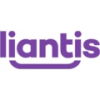
Project lead
LiantisBruges, Flanders, Belgium- Offre sponsorisée

DevOps Lead
LGA ITBrugge, Vlaanderen, Belgium- Offre sponsorisée

Team Lead / System Engineer Middleware
Nationale Bank van BelgiëBruges, BE- Offre sponsorisée

Azure Data Engineer
Nationale LoterijBruges, BE
Product Designer
MarleeBruges, BE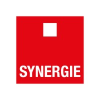
LEAD AUTOMATION ENGINEER
SynergieBRUGGE, BE- Offre sponsorisée

Project Engineer
g2 RecruitmentBruges, Flemish Region, Belgium
Digital Lead
Gentis RecruitmentBrugge- Offre sponsorisée

Head of IT Processes, Governance and PMO
EquansBruges, BE
Functional Safety Software Engineer
Dana IncorporatedBrugge, BE- Offre sponsorisée

Azure Solution Architect
Parallel ConsultingBruges Metropolitan Area, Belgium- Offre sponsorisée

Project lead
WhatJobsFlanders, Bruges, Belgique- Offre sponsorisée
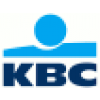
Scrum Master - Team Lead
KBCBruges, BE- Offre sponsorisée

Finance & HR Director, EMEA
Motion Picture Association International HoldingBruges, BE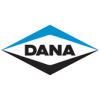
Functional Safety Software Engineer
DanaBrugge, BE
Junior Medisch Afgevaardigde Brugge
IQVIABrugge, West Flanders, Belgium- Offre sponsorisée
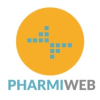
Regulatory Submissions Manager
PharmiwebBruges, BE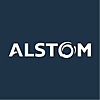
PI Field Modification Coordinator 1 1
AlstomBrugge, BE
Marie-Curie (MSCA) PhD Position : Application of system thinking and system safety to head-foot steering system for your powered wheelchair (AERIALIST DC1)
KU LeuvenBrugge, BEThe increasing internal complexity of assistive devices, coupled with the trend toward self-adaptability and the integration of AI and ML, presents significant challenges in ensuring safety throughout the entire lifecycle. This complexity not only extends to the technical aspects but also to the interaction between users and the technology. Traditional hazard-and-risk analysis techniques typically operate under the assumption that random failures of individual components lead to accidents, thereby overlooking these emerging safety challenges. To address this evolving landscape, it becomes imperative to develop novel hazard-and-risk analysis techniques that reframe safety as a control problem10, considering both component reliability and the dynamic interplay of human interaction with the system.
In this doctoral position advancing you will develop new techniques to eliminate emerging hazard-and-risk through an analysis that reframes safety as a dynamic control problem, moving away from the traditional component-failure approach. This innovative approach takes into account not only component reliability but also the dynamic interplay between users and the technology, strengthening the safety-assurance case for assistive devices.
Your mission :
- Formulate a novel hazard analysis methodology integrating STAMP and STPA, involving human interaction in the assessment of powered wheelchair risks;
- Assess the efficacy of the developed methodology through application to two distinct use case studies.
- A hazard and risk analysis methodologies for assistive health technology based on Systems Thinking and Systems Theory,
- Illustrate this using two use cases
- An assurance case patterns for evaluating and arguing the dependability of powered wheelchairs
- A fully funded 3-year PhD scholarship (extendable to 4 years)
- Next to you monthly grant, you have a living allowance to travel abroad and to finanance your secondments. If you have a family, you can obtain a family allowance.
- Specialized doctoral training to boost your expertise.
- Opportunities to collaborate in groundbreaking interdisciplinary research and participate in international conferences.
- Access to state-of-the-art infrastructure and a range of university benefits (health insurance, etc.).
- A dynamic, passionate team of fellow PhD students and test engineers.
Expected Results :
At the M-Group at KU Leuven Bruges Campus, we are driving innovation in interconnected, intelligent mechatronic systems. The research group focusses on making systems reliable by developing new technologies in hardware, software, sensors, mechanical structures, energy systems and artificial intelligence. Modern systems need a holistic view on those 4 components, where we integrate expertise of computer science, electrotechnical engineering and mechanical engineering. M-Group is a multi-departemental research group where computer science, electrical and mechanical engineering expertise is combined. The research group consists of 8 professors and more than 40 researchers (postdocs, phd students or assistants) and is supported by a project coordinator, a research manager and 2 technical staff members. We are based at the KU Leuven Campus of Bruges in the province of West Flanders in Belgium (1 hour train ride from Brussels, 3 hour train ride from Paris). The group has access to state-of-the-art labs with recent machines and robotics and has many collaborations with other labs spread over Belgium.This position is a Marie Slodowska-Curie scholarship from the European Commission.
We offer :
KU Leuven receives Researcher Allowances, consisting of a living allowance, mobility allowance and, if applicable a family allowance, for the recruitment of the Doctoral Candidate. These Researcher Allowances will be used to cover the Doctoral Candidate’s remuneration, including all employer and employee’s taxes and contributions.Full details can be consulted at https : / / dn-aerialist.eu / apply-now / In this topic you will be working together with University of Zurich (Switserland) and the Spanish National Research Counsil (CSIC, Madrid).